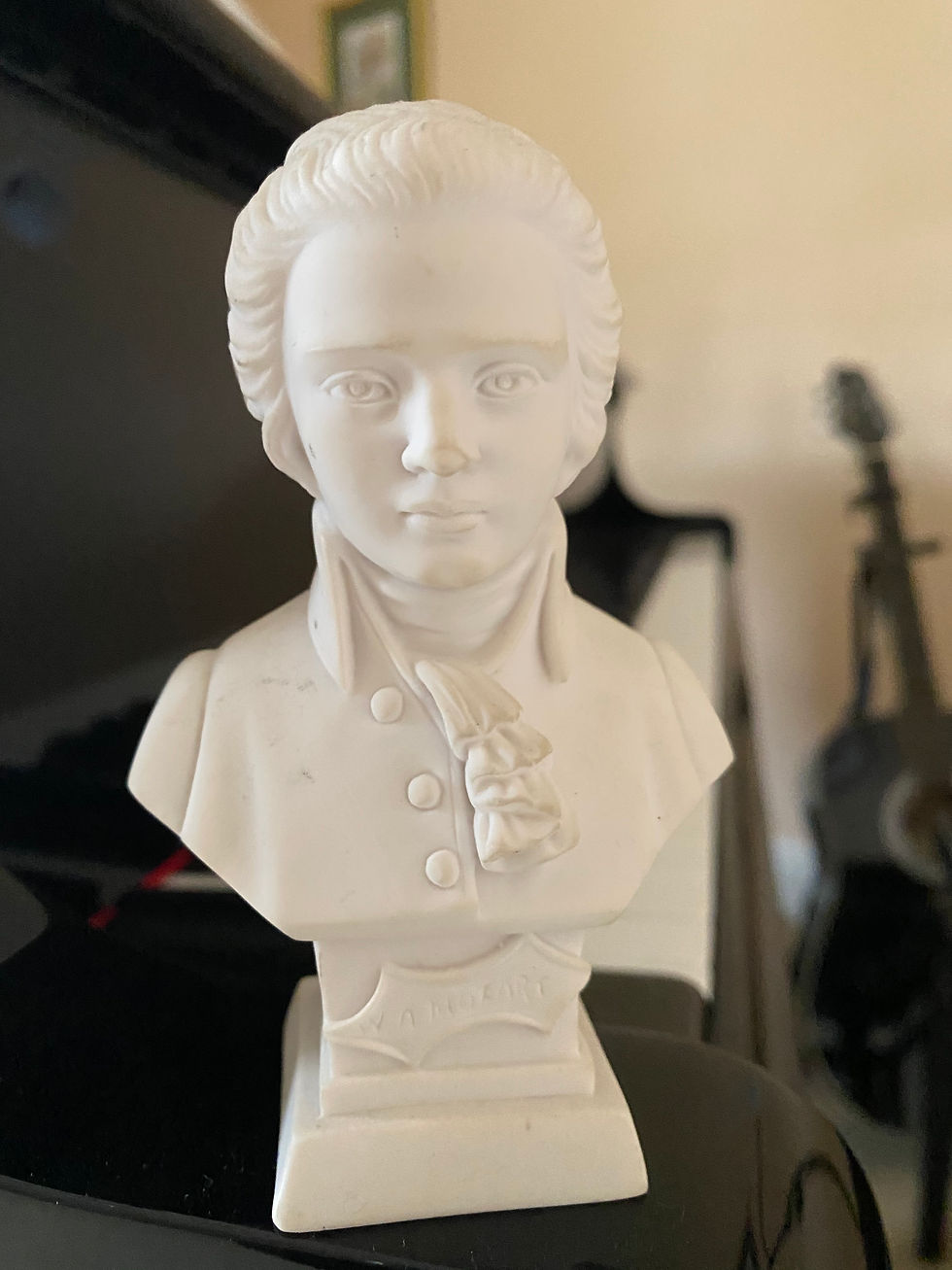Overture to Don Giovanni by Mozart
- Simon Rushby

- Nov 3, 2020
- 2 min read
Updated: Jan 29, 2021
#listeneveryday 3 Nov 2020

In early 1787 the 31-year old composer Wolfgang Amadeus Mozart made a very successful visit to Prague and was asked to compose a new opera to be performed there later that year. He teamed up again with Lorenzo Da Ponte who had written the libretto (the plot and words) for Mozart's previous, highly successful opera, The Marriage of Figaro.
The new opera was Don Giovanni, a fresh take on the story of a rich, evil Spanish libertine who proudly took advantage of women, gambled and committed murder only to get what he deserved in the final scene. It opened in Prague to rapturous reviews and was equally successful when performed in Vienna in 1788. Tragically, Mozart was to die just three years later, but not before he completed two further operas and a mind-boggling number of symphonies, sonatas, concertos and other works.
Don Giovanni remains one of the most popular operas today, and its overture, reportedly written by Mozart on the day before the opera's first performance, sums up its dark, moody and dangerous tone in its opening chords, which famously begin the Oscar-winning 1984 film Amadeus. An overture is usually played at the very begnning of an opera, sometimes before the curtain rises, and serves the purpose of setting the mood for the forthcoming drama.
The slow, minor-key opening is dark and brooding - we hear this music again in the dramatic final scene when Don Giovanni meets his fate. Soon, the key becomes major and the tempo quick, and we hear Mozart in sunnier mood, preparing the way for Don Giovanni's repugnant 'games' and jokes. The orchestra is quite large for Mozart's music - the usual string section is heavily featured and there are wind, brass and timpani to accentuate the dramatic moments.
Something to do
If you'd like to go a little deeper into the music, there are two interesting accounts here and here which give you a little more insight into the structure of the overture.
Moving from dark minor keys to sunnier major ones is a favourite dramatic technique used by hundred of composers over the years, especially in the world of opera, musicals and film. What examples can you think of where the music keeps moving from minor to major and back again?
To get you started, here's one example from the world of film music.
More to listen to
The dramatic final scene from Don Giovanni, where we hear the music of the overture again.
The overture to The Marriage of Figaro, written by Mozart the previous year.
A new #listeneveryday post is published every weekday! Comment below or tweet @SimonRushby with your suggestions for future music.










Comments